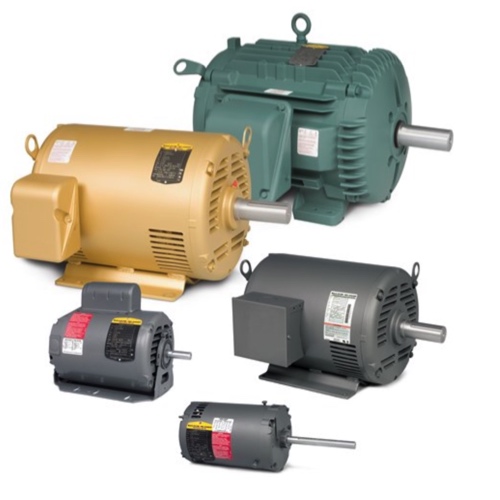Baldor Motors

Baldor-Reliance electric motors are engineered to deliver dependable performance in demanding industrial and commercial applications. RSP Supply carries a comprehensive selection of Baldor motors designed for continuous-duty operation across industries such as manufacturing, power generation, material handling, HVAC, water treatment, and automation. These motors provide consistent torque, stable operation, and reliable power delivery in a wide range of operating conditions.
As part of the ABB Group, Baldor-Reliance motors combine long-standing motor design expertise with modern efficiency and reliability standards. Their construction supports long service life, reduced maintenance requirements, and dependable operation in harsh or high-duty-cycle environments. Available options include general purpose, definite purpose, pump, inverter duty, and severe-duty motors to meet diverse system requirements.
From small control motors to high-horsepower industrial solutions, Baldor electric motors are designed to integrate seamlessly into new installations or replacement applications. Their broad product range allows engineers and maintenance teams to select motors matched to specific voltage, enclosure, mounting, and performance needs while supporting energy efficiency and operational consistency.
FAQs
Q: Are Baldor-Reliance NEMA motors part of ABB’s mechanical power transmission and generators business unit?
Yes, Baldor-Reliance NEMA motors are part of ABB’s Mechanical Power Transmission and Generators Business Unit and are used in industrial and power generation applications worldwide.
Q: What types of Baldor motors does RSP Supply carry?
RSP Supply offers variable speed motors, pump motors, definite purpose motors, integral horsepower motors, and severe- or dirty-duty motors for a wide range of applications.
Q: What industries commonly use Baldor-Reliance motors?
Baldor motors are widely used in automation, HVAC, water and wastewater treatment, power generation, mining, and manufacturing environments.
Q: What contributes to the reliability of Baldor electric motors?
Baldor motors are designed with durable enclosures, efficient windings, quality bearings, and balanced rotors to support long operating life and consistent performance.
Q: Can Baldor motors be used in continuous-duty applications?
Yes, many Baldor motors are specifically designed for continuous-duty operation and are suitable for demanding industrial environments.
Why Buy Baldor Electric Motors from RSP Supply
RSP Supply provides a broad selection of Baldor-Reliance electric motors to support industrial and commercial operations. Our product offerings cover a wide range of motor types, frame sizes, and application requirements. Customers rely on RSP Supply for authentic Baldor products, technical application support, and dependable sourcing for critical motor solutions.

